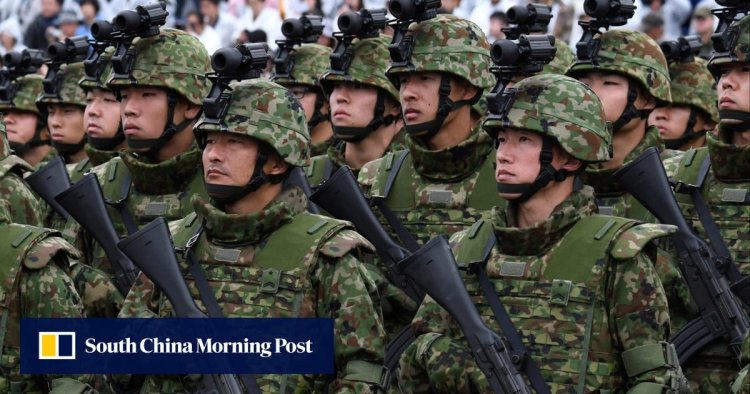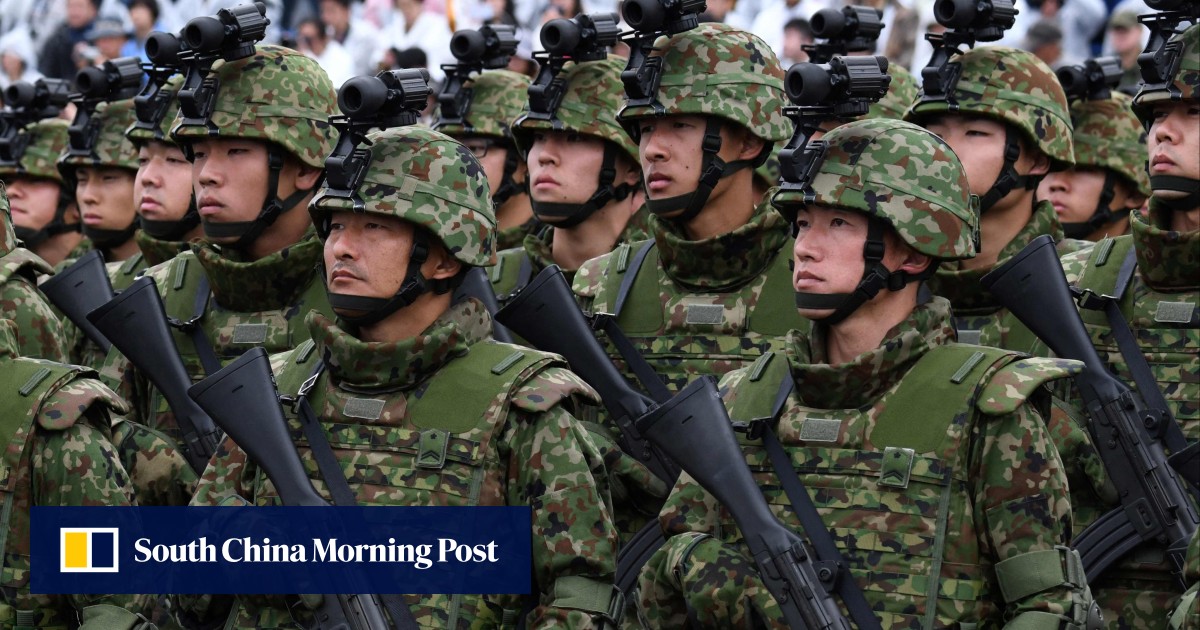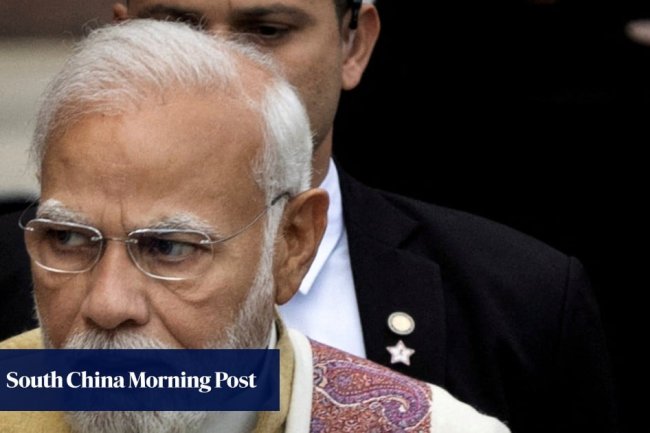China says Japan’s military pivot will have ‘serious impact’ on regional stability
2023.04.30 18:00An influential Chinese military magazine has strongly criticised Japan’s moves to adopt a more offensive posture in a bid to become a major regional military power, as relations between the two nations become increasingly fractious.In its latest defence budget, Japan has for the first time shown how its military could carry out long-range strikes against enemy ground troops and surface vessels, according to Modern Ships, a magazine published under the Chinese Ministry of Science and Technology and run by the China Shipbuilding Industry Corporation.A long-range strike scenario showed how Japanese armed forces could target and destroy rival assets by coordinating weaponry, including aerial satellites, submarines, glide bombs, hypersonic cruise missiles and fighter jets, the magazine said in its April issue.It said Japan had “ridden the tide” of US competition with other major countries and taken advantage of this by developing both offensive and defensive forces, which fe


An influential Chinese military magazine has strongly criticised Japan’s moves to adopt a more offensive posture in a bid to become a major regional military power, as relations between the two nations become increasingly fractious.
In its latest defence budget, Japan has for the first time shown how its military could carry out long-range strikes against enemy ground troops and surface vessels, according to Modern Ships, a magazine published under the Chinese Ministry of Science and Technology and run by the China Shipbuilding Industry Corporation.
A long-range strike scenario showed how Japanese armed forces could target and destroy rival assets by coordinating weaponry, including aerial satellites, submarines, glide bombs, hypersonic cruise missiles and fighter jets, the magazine said in its April issue.
It said Japan had “ridden the tide” of US competition with other major countries and taken advantage of this by developing both offensive and defensive forces, which feature stand-off capabilities.
According to the United States Naval Institute, stand-off capability refers to the ability to conduct long-range strikes against invading forces, particularly at Japan’s remote islands, such as the disputed Diaoyus, also claimed by China and known in Japan as the Senkakus.
Modern Ships criticised Japan for exacerbating regional geopolitical tensions, triggering arms races in the Asia-Pacific region, and damaging the overall prospects of Sino-Japan relations.
“[Japan’s] Self-Defence Forces turning to an offensive posture shows that Japan’s right-wing forces are breaking the post-war system and intervening in regional situations. It will have a serious impact on the regional military balance and strategic stability, and deserves high vigilance,” the magazine said.
It also criticised Japan for further complicating the Taiwan issue.
“Remarks like ‘safeguarding Taiwan is safeguarding Japan’ are aimed at suppressing international and domestic worries over worsening Sino-Japan relations.”
Chinese envoy warns Tokyo on Taiwan, links Japanese man’s detention to spying
“Once Japan has the ability to conduct long-range strikes, the nation is expected to change from a ‘shield’ to a ‘sword’ … push for a complete lift of the ban on the development of its military power, and eventually achieve the country’s goal of becoming a major military power,” the magazine said.
Japan’s latest defence spending package, approved late last year, totalled 6.8 trillion yen (US$52 billion), a 26 per cent increase over the country’s previous defence budget.
Naoko Aoki, an associate political scientist from the Rand Corporation, a US think tank, said stand-off capability is a notable change in Japan’s military development.
“One of the most talked-about aspects of Japan’s recent changes is its decision to acquire counter-strike capabilities. This means that the country is acquiring long-range capabilities that could be used to strike enemy bases in the event of an attack,” Aoki said.
“Japan has a multi-tier defence system against ballistic missile attacks, but the country’s acquisition of long-range counter strike capabilities adds another element that complicates decision-making in Beijing and Pyongyang, because this means that Japan can respond to a missile attack by striking their bases if necessary,” she added.
But Jeffrey Hornung, a senior political scientist also from the Rand Corporation, said while Japan had distanced itself from its traditional posture, the country’s military positioning remained primarily defensive.
China’s Shandong aircraft carrier sets new sortie benchmark
“If you look at its force as a whole, it’s still very much oriented towards defence … Japan still is very much focused on defence and trying to deter would-be adversaries from trying to attack Japan,” Hornung said.
“Japan is not anywhere near what China is producing and they do not have nuclear weapons and bombers.
“If a war broke out over Taiwan, and if the United States chose to defend Taiwan, then I think you might see Japan supporting US forces in Japan. That does not mean that Japanese forces are going to be fighting in Taiwan or fighting in the Taiwan Strait.”
What's Your Reaction?

















